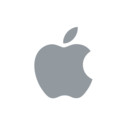Job Description
Summary
Are you ready to do the best work of your life and have a positive impact on millions of lives through incredible products? Then, you are in the right place!
The Technology Development Group (TDG) is looking for an AR/VR Algorithm Engineer with expertise in developing state-of-the-art research algorithms and implementing them into hardware platforms for productization. The ideal candidate will have a history of working with time-series and computer vision algorithms and building software tools and libraries that transform ideas into on-device implementation.
Key Qualifications
2+ years of experience writing efficient, readable, and reusable code in Swift or Objective-C using public APIs including ARKit, UIKit, SceneKit, ModelKit, CoreMotion, CoreML, etc.
2+ years of experience with C/C++ modeling of computer vision and ML algorithms.
Excellent software engineering skills including source control, unit testing, debugging, documentation, continuous integration & build trains
Experience with Unix development, daemons and cross-process communication.
Experience in statistical and signal processing, linear algebra, time-frequency analysis and their application to physiological datasets.
Fluency in a high-level programming language (Matlab and/or Python) and familiarity with ML tools (scikit-learn, pandas and deep learning toolboxes such as TensorFlow and PyTorch).
Ability and interest to work across organizations to define sensor and algorithm specifications, development goals and performance measures.
Experience with the product development lifecycle and productizing research algorithms.
Description
This is a hands-on interdisciplinary engineering role that will require you to be versatile across a variety of tasks in a highly collaborative and focused environment. You will work closely with scientists, engineers, and designers to build world-class technology at Apple! You will have the following responsibilities:
Implement and port real-time algorithms to various devices and platforms in order to support product development.
Develop, maintain, and support software libraries and tools.
Train and tune machine learning models that operate on time-series data.
Help with multimodal sensor data collection and algorithm development to demonstrate feasibility and productization.
Education & Experience
BS / MS / PhD in Computer Science, Biomedical Engineering, Human Computer Interaction OR equivalent degree/experience
Additional Requirements
Knowledge of image processing principles including low-level computer vision such as optical flow estimation, segmentation and stabilization is preferred.
Exposure to AR/VR technologies is preferred.
Experience with data collection instrumentation and sensors is preferred.
Notes: This position requires relocation to the Bay Area.
Role Number: 200278185
